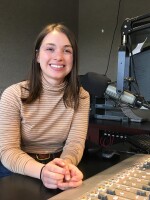The Park City Council on Thursday gave the City housing staff guidance on how applicants for affordable and attainable housing units should be selected for City-owned developments.
The City Council had three options before them. The first was a completely random process, where each qualified applicant would have the same chance of being selected—basically, pulling a number out of a hat. Staff recommended that option because it eliminates the perception of favoritism and provides a simple and transparent process. The second was a weighted process, where applicants could get more numbers in the hat based on different factors, such as the type of employment they hold or how long they’ve worked in Park City. The third was a points system, where applicants receive more points by meeting more qualifiers, then are ranked from highest to lowest. To participate in the selection process, applicants need to meet a baseline of qualifications, including working full-time within Park City School District boundaries for the past two years and participating in a housing education program.
As they discussed the options, some councilmembers talked about how, when they’ve had conversations with community members, it’s been difficult to sell the idea of the City’s affordable housing efforts, and that giving additional consideration through a weighted system to essential workers and community builders, like firefighters and teachers, makes skeptics more receptive. Councilmember Steve Joyce says he gets a common response from residents.
“'Gee, you know, I worked really hard, and I couldn't have afforded to live in Park City—blah, blah, blah, you hear the same kind of thing—why do these people get a right?'" Joyce said. "As soon as I tell them we're not trying to handle the J-1s, we’re not trying to handle the seasonal people, we're not even trying to handle the bartenders and things like that, mostly, what we're trying to focus on is the people in this kind of, you know, the teacher, policemen, firemen kind of thing, and very few of those people can afford to live in town. And it's amazing; you can watch a light switch go, that people are like, 'oh.'"
Councilmember Becca Gerber pushed back, saying she understands it’s easier to defend that position, but it feeds into “not in my backyard” sentiments and the conversation around the workforce.
“We have a lot of families that have been here for a really long time and work really hard cleaning people's houses, plowing driveways, doing landscaping, that are good members of our community and work with lots of people in town," Gerber said. "I get frustrated when we talk about valuing some people because of a position better.”
Mayor Andy Beerman weighed in, saying the City would lose public support for affordable housing if the lottery wasn’t weighted and that there’s additional value in having essential workers in town.
“This is the single most important thing to get public buy-in, has been my experience out talking in the public," Beerman said. "When you describe this, nobody says they don't want a teacher in the town. A lot of people say, 'I don't want a lifty, I don't want a dishwasher.' That's a whole other issue, which we can address through social equity, but the reality is to keep the public support, I think the weighting is the more popular way to go on this, as well as I think it makes some sense.”
The lottery process will be applied in the nearest future to the Woodside Park Phase I and II projects—Phase I should be finished in July and Phase II in 2020. The units of both projects will be for sale. But the City is also planning to build rentals in upcoming housing developments. Gerber said she’s worried how a weighted system will impact those who choose to rent rather than own.
“I’ve made a point to talk about it differently and talk about appreciating people who work in this town," Gerber said. "Because we need workers, and we need a workforce, and it needs to be a diverse workforce, not just speaking of ethnicity or religion—just different socioeconomic levels, different jobs in this town, different people.”
The selection process decision wasn’t put to an official vote by Council, but councilmembers suggested the weighted lottery, with all in favor except Gerber, who preferred the random lottery.


